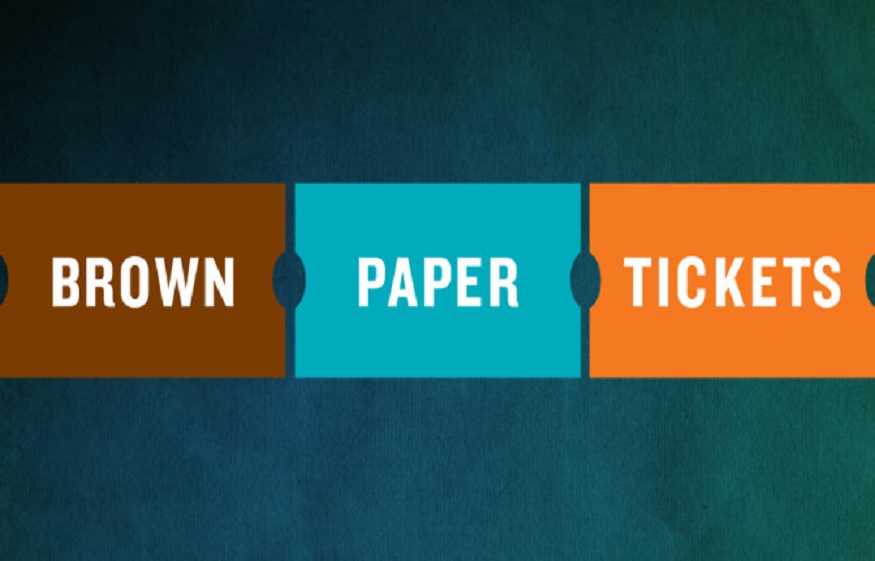
Sustainability isn’t just a detail to confirm a week before showtime, but it’s something that needs to be built in from the start. The most impactful events are those where every partner, from the caterer to the sponsor, shares the same values and expectations from day one. Platforms like Brown Paper Tickets, a ticketing service offering digital tools for seamless and sustainable event planning, help lay the groundwork by simplifying early coordination and allowing teams to focus on collaborative strategies that embed sustainability at every stage.
Sustainable events don’t just happen. They’re designed through intentional relationships and clear expectations. When contracts, vendor calls and sponsor decks all reflect a shared environmental ethic, it becomes easier to build alignment across the board and harder for key details to get lost in the rush of last-minute decisions.
Starting With the Right Conversations
Sustainability starts long before the event space is booked or the guest list goes live. Environmental goals should be introduced and taken seriously in the earliest conversations with vendors, venue managers and sponsors. Organizers are finding success by setting sustainability as a baseline, not a bonus. That might include asking vendors about their waste practices, requesting details on materials sourcing or inquiring about local partnerships.
For sponsors, it could mean designing packages that support visible sustainability efforts, like branded hydration stations, zero-waste zones or refillable merchandise. These discussions shape not only what’s delivered on the event day but also how decisions are made along the way. When expectations are clear from the beginning, vendors are more likely to innovate and collaborate rather than deliver cookie-cutter packages that fall short of the mission.
Embedding Sustainability into Contracts
A conversation is a good start. A contract makes it real. More event organizers are building sustainability clauses directly into their agreements with vendors, venues, and sponsors. These clauses may outline specific requirements, such as the use of compostable materials, plastic-free packaging, or post-event waste audits.
Other contracts include sourcing standards, local vendor preferences or commitments to reuse signage and production elements. Venues may be asked to share sustainability policies and provide access to existing waste infrastructure. Sponsors may be invited to align their activation concepts with the event’s goals. These agreements don’t need to be punitive. They can be framed as opportunities. When partners know that sustainability is a priority, they often bring their own ideas, services or product swaps to the table. That leads to stronger outcomes and better working relationships.
Planning Time for Alignment
One of the biggest barriers to sustainable execution is time, or the lack of it. Events often move fast, and small decisions made under pressure can have big consequences. That’s why building extra time into pre-event planning is critical. Teams that schedule early vendor briefings, walk-throughs or collaborative brainstorms tend to uncover smarter, lower-impact solutions. Some events even host virtual “green previews,” where each department shares their planned sustainability contributions, and troubleshooting can happen before contracts are finalized.
Platforms like Brown Paper Tickets support this kind of planning by reducing friction in early logistics. Digital tools for registration, updates and ticketing allow organizers to stay focused on aligning partners rather than chasing paperwork or printing forms. When the administrative side runs smoothly, there’s more room for value-based decision-making.
Designing Sponsorship with Shared Impact
Sustainability isn’t just a production concern. It’s a brand opportunity. Sponsors increasingly want to align with events that reflect their environmental and social values. Events want partners who support more than just visibility. That alignment starts in the sponsorship package. Instead of offering logo placement on single-use items, organizers are pitching ideas like compost station sponsorships, carbon offset donations, or digital program underwrites. These activations showcase both sustainability and sponsorship in a useful and audience-aligned way.
Some events invite sponsors to co-create elements that reduce waste or add value, like digital swag bags, refill stations or eco-education lounges. These partnerships often generate more engagement than traditional branding because they serve a function while telling a story. Sponsorships built around sustainability also open the door to grant funding, community support or press coverage that highlights collaboration, not just presence.
Vendor Relationships That Last
Working with local, sustainability-minded vendors often creates relationships that go beyond a single event. When caterers, AV teams, florists and waste haulers know what matters most to your organization, they become partners, not just providers. That trust allows for better planning and more efficient execution. It also means vendors can offer smarter alternatives, like reusable service ware, solar-powered setups or greener delivery methods, without needing to guess what can be approved.
These relationships take time to build, but they pay off in smoother load-ins, fewer errors and more flexible service when things shift unexpectedly. Long-term partnerships also help teams refine contracts and sustainability expectations across multiple events, reducing start-up effort with each new collaboration.
Telling the Story in Real Time
Once sustainability is backed into your partnerships, the final step is to show guests what that collaboration looks like in action. On-site signage, pre-session announcements or post-event recaps are all ways to highlight the work happening behind the scenes. Some events even include mini profiles of local vendors, a list of sustainability sponsors or a visual timeline of eco-friendly milestones reached through partnerships.
Transparency builds trust. When guests understand that sustainability wasn’t just added at the end, but was part of every conversation from the start, they’re more likely to participate, spread the word and support future efforts.
Sustainability That Starts Before the Stage Is Set
The most sustainable events aren’t those that scramble for green solutions after the plan is set. They’re the ones where sustainability shapes the plan from the beginning. That’s why contracts, kickoff meetings and pre-event strategy sessions matter. When sustainability becomes part of the blueprint, not just the checklist, it can show up everywhere, such as in the catering, the lighting, the partnerships, and the way guests move through the space and feel included in the mission.
Platforms like Brown Paper Tickets help support that vision by enabling digital workflows, flexible communication and simple coordination, all without generating more waste or complexity. Because when you plan sustainably from the ground up, you don’t just reduce impact. You build a connection, and that’s what guests remember most.

